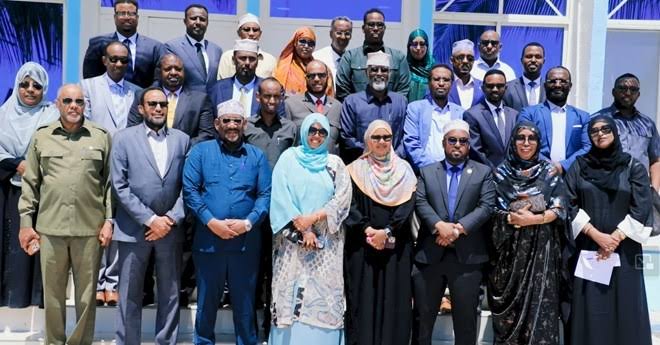Facebook Twitter (X) Instagram Somali Magazine - People's Magazine
Federal lawmakers from Somalia’s Jubbaland State have accused the federal government of actively recruiting forces along the Kenya-Somalia border in a bid to destabilize the region. This allegation was made public in a joint statement issued by members of both houses of the Somali Parliament representing Jubbaland on Tuesday, January 7, 2025.
The lawmakers claimed that federal authorities, along with former Somali army officers previously stationed in Jubbaland, are involved in recruiting militias near the border. According to the statement, the federal government is allegedly financing and organizing militias to create insecurity and disrupt the peace in both Jubbaland and neighboring Kenya.
The federal government has yet to issue a formal response to the accusations. However, tensions between Mogadishu and the Jubbaland administration have been mounting for months. The strained relations date back to November 2024, when federal authorities refused to recognize the reelection of Ahmed Madobe as Jubbaland’s president. This political standoff has since exacerbated security challenges in the region, with both sides accusing each other of undermining stability.
The federal lawmakers have urged both regional and international bodies to investigate the matter, emphasizing that the alleged recruitment activities could threaten cross-border peace and worsen tensions between Somalia and Kenya. They warned that continued interference could further fracture Somalia’s fragile political landscape and derail ongoing efforts toward national reconciliation and federal stability.
Jubbaland State has long been a focal point of tension between the Somali federal government and regional administrations. Located in southern Somalia, the region borders Kenya and Ethiopia and plays a strategic role in regional security dynamics. The Kenyan government, which has significant economic and security interests in Jubbaland, has expressed concerns over instability along its border.
Ahmed Madobe, who has led Jubbaland since 2013, has been a controversial figure in Somali politics. His reelection in November 2024 was met with opposition from Mogadishu, with federal authorities questioning the legitimacy of the electoral process. Madobe’s administration, however, has continued to assert its autonomy, often clashing with the central government over issues of security, governance, and resource allocation.
The current allegations further complicate the already strained relationship between Jubbaland and the federal government. Analysts warn that if not addressed through diplomatic channels, the accusations could lead to heightened conflict and disrupt ongoing efforts to combat Al-Shabaab, which remains a persistent threat in the region.
Jubbaland lawmakers have called on the African Union Transition Mission in Somalia (ATMIS) and the United Nations to intervene, urging these international partners to mediate and investigate the reported recruitment activities. They stress that ensuring peace and stability in Jubbaland is critical for the overall security of the region, particularly given the proximity of the Kenya-Somalia border, which has experienced cross-border attacks in the past.
Political analysts point out that the federal government’s alleged actions, if proven true, could undermine Somalia’s broader state-building efforts. The centralization of security control has been a contentious issue in Somalia’s federal structure, with regional states like Jubbaland advocating for greater autonomy in managing their own security affairs.
This dispute also raises concerns about the involvement of former military officers, as their participation in alleged militia recruitment could point to deeper divisions within the Somali security forces. Ensuring that the national army remains neutral and committed to the broader goal of national stability will be crucial in preventing further fragmentation.
As tensions continue to escalate, calls for dialogue and reconciliation have become more urgent. Political experts emphasize the need for a comprehensive peacebuilding framework where federal and regional authorities can collaboratively address security concerns without resorting to divisive tactics.
The Somali federal government’s silence on the issue has only fueled speculation, with critics urging transparency and accountability in all security operations. For now, the people of Jubbaland remain caught in the middle of a power struggle that threatens both local governance and national cohesion.

